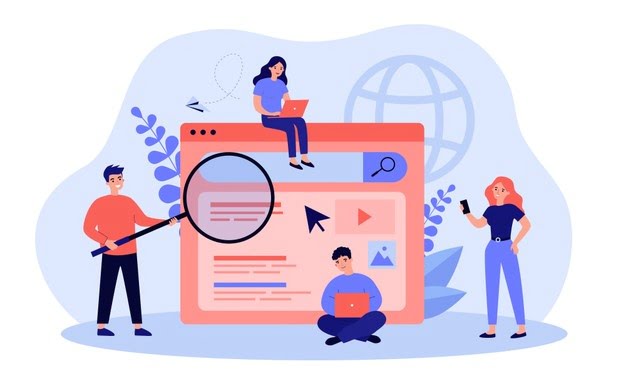SEO Strategies to Increase Organic Traffic
by Ankita Tripathy Marketing Published on: 19 February 2021 Last Updated on: 27 December 2024

SEO strategies seem to be constantly changing. Google and other search engines are constantly growing and expanding. As a result, They are also using new strategies to analyze web pages and organize rankings.
The reason why this happens is that the more effective a search engine is at answering queries that users input and guiding those users to ads, the more money the search engine makes.
Unfortunately, this strategy makes it difficult for website owners who rely on organic traffic and no ads. Therefore, that means maintaining a website that outdoes the competition is challenging.
Marketing teams must work harder than ever to ensure their websites meet search engine guidelines and algorithms, lest they fall in ranking and lose traffic.
So, what can you do to keep up with the ever-changing world of SEO to increase your organic traffic? Hence, here are some tips from ours Atlanta SEO company.
SEO Strategies to Increase Organic Traffic

If you want to boost your organic traffic and compete with websites that use paid ads, there are some things you can do to get the ball rolling. If you are serious about wanting to rank top organically, then you should hire a reputable organic SEO expert to achieve the best results. Take a look at the following strategies:
Check Your Website’s Performance
Use a rank-checking tool to see where your web pages rank in search engine result pages (SERPs). You can check your ranking based on keywords. The higher you rank, the more organic traffic you will get, which boosts return on investment (ROI).
Improve the User Experience

As noted by a web design agency, high-quality websites are more likely to rank higher in SERPs. Search engines like Google measure quality based on a variety of factors, such as:
- How trustworthy your site is
- If your site and content is updated
- If your pages load quickly on computers and mobile devices
- If your images load properly
If your site looks amateurish or unfinished, doesn’t make sense for your product or service, or is outdated, you are losing opportunities to rank higher in SERPs.
Make Content Easy to Read
All of your content should be easy to read. Users entering a search into Google are looking for information that they can relate to and understand. That means writing content that is readable and meets SEO guidelines. You can do this by doing the following:
- Write quality content. Choose a topic that is relevant, write in a way that answers the user’s question, and make sure your content is free from spelling and grammatical errors.
- Use shorter paragraphs. You should limit your paragraphs to three or four sentences. Splitting up the text makes it easy for the user (who skims the content) to find interesting and relevant information.
- Mix your sentence lengths. Long sentences are harder to read than short ones. Limit your sentence length to less than 20 words.
- Use sub-headers. The average internet user spends less than 40 seconds reading content. That means you need to grab their attention with useful information. You can do this by adding sub-headers to break up content and thoughts.
- Use bullet points. Bullet points are a great way to break up statistics, facts, ideas, or examples.
- Leave some white space. Too much text on a web page can overwhelm the user. Leave enough white space to allow the user to breathe.
Increase Website Speed
One of the most important elements of a website that meets SEO standards and Google guidelines is website speed. If your web pages load quickly and correctly the first time, the user will have a better experience and is more likely to engage further. If your site loads slowly or graphics are not displayed properly, the user is more likely to leave the site quickly.
Bonus Section: Tips That Will Help You Increase Organic Traffic

Well, the above bits of advice really work out in the long run. However, increasing organic traffic is such a hassle. Therefore, you need all the help that you can get.
In this section, we will be discussing some of the most important and useful tips that can help you increase traffic organically.
Here they are:
- Optimize your pages for the reader and not the search engine. The search engine is an algorithm that can be manipulated. Therefore, focus on what your reader wants to know or see.
- Create a blog that discusses the journey of your company or something that will intrigue audiences. This will motivate readers to visit your page for an organic reading experience.
- Publish content regularly to keep the readers updated. Make sure that you create a schedule and follow it religiously. This will add a method to all the madnesses.
- Create space for featured snippets. This can bring in organic traffic as it can help the audience to take notice of your website.
- Use industry-relevant keywords. This will help you rank higher on Google search pages. Therefore, this will help you to become more visible and bring in people organically by adding more visibility.
- Always keep the keyword pool updated, and the gaps filled. This will help your business stay fresh and feel relevant and not jaded.
Also, look at the ancillary queries people have. This will make you understand the overall essence of what your audience is looking for.
Are You Keeping up with SEO Changes?

SEO is constantly and rapidly evolving. Are you keeping up? If not, it may be time to re-evaluate your SEO and digital marketing strategies. By using the tips above, you will be on your way to increasing organic traffic. But the reality is that the work doesn’t stop there. You must consistently review your website and make changes when necessary.
Read Also:



































































































